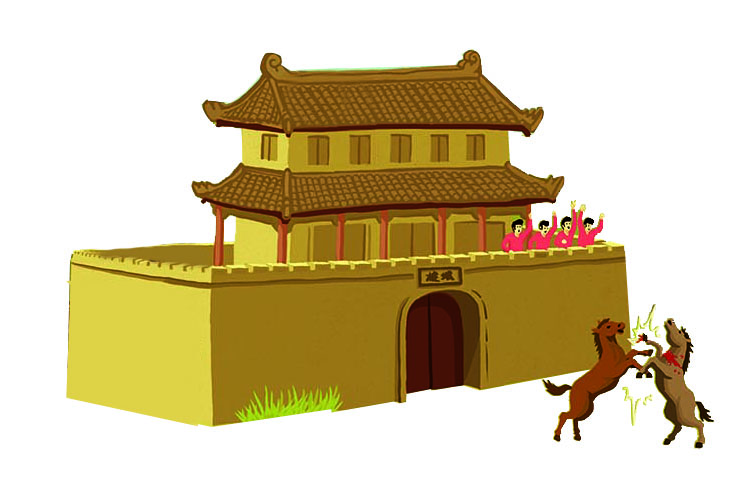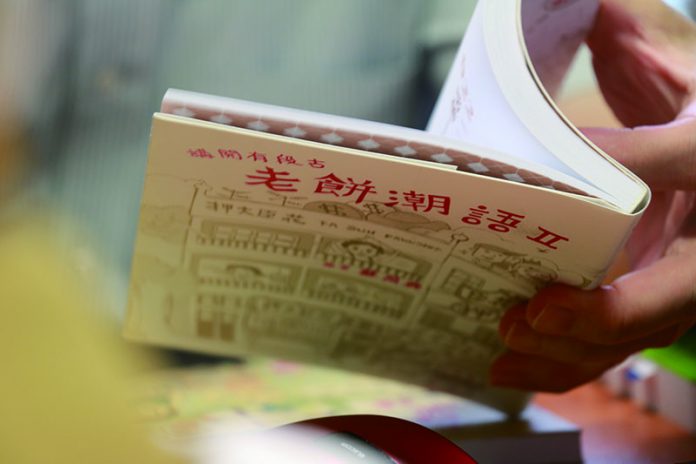Cantonese sayings preserve traditional folk wisdom in a new era
By Fiona Chan
If you were born in a Cantonese family, chances are you have heard the saying: “I have eaten salt more than you have eaten rice (我食鹽多過你食米).” In fact, you have probably been told this by your parents or other senior family members.
It means “I have more experience than you” and is one of the Cantonese sayings, proverbs and idioms commonly used by the past few generations of Hong Kong parents when they scold or advise their children.
These sayings, characterised by allegory and metaphors, are the oral creations of ordinary local people, inspired by their everyday lives and passed on by word of mouth.
Au Yeung Wai-hoo, senior lecturer in the Department of Chinese Language and Literature at the Chinese University of Hong Kong (CUHK), says people in the past often had a limited education but they still wanted to convey folk wisdom and pass it on. They expressed it using simple and brief wording.
Au Yeung gives the example of the idiom, “straw covering pearls” (禾稈冚珍珠), which means pretending to be poor or putting on rags over glad rags. “Say ‘straw covering pearls’ alone and that’s it. The whole picture stands out,” he says. “But if I explain the whole message instead of using the proverb, it is time-consuming and doesn’t have this instructional function.”
Au Yeung points out that Cantonese proverbs and idioms often involve images of specific things that aid memorisation. Therefore, it is sometimes easy to guess what the proverbs mean from the literal meaning. As in the case of “straw covering pearls”, the images of straw and pearls are both easily conjured up. The images also stand in stark contrast with each other – the former is cheap and plentiful, but the latter is precious and rare. This contrast alone makes the saying vivid, its meaning clear without the need for elaboration.
Apart from the characteristics of Cantonese itself, the settings in which the sayings are spoken can encourage people to use them. Tsui Wing-shan, a 25-year-old YouTuber, spends her free time producing Cantonese-themed videos for her “The Wingshantsui Channel”. She says using Cantonese proverbs can help her build relationships with others.
Tsui was born in Vancouver, and grew up there. She says she is lucky to have learned Cantonese at a Chinese language school as a child and she started to love it as a teenager. Tsui says her mother often used Cantonese proverbs in their conversations. Although this gave her the impression that her mum was trying to mock her while giving her advice, she did not resent it. Instead, she found it very interesting.
Tsui thinks Cantonese proverbs and idioms seem more casual than English, which she finds formal and courteous.

“I think compared to English, Cantonese proverbs have a hint of sarcasm. It is not a bad thing but rather can make people closer,” says Tsui.
She began to collect Cantonese proverbs and idioms and introduced them in her videos as a way to save them.
“Producing videos allows permanent preservation. Everybody can view them,” she says.
Although Cantonese proverbs and idioms may seem ubiquitous, there is a chance that some of them are in danger of fading out.
In October, Varsity made a list of eight Cantonese sayings and randomly asked 11 students at The University Mall of CUHK which of the sayings they knew. Most of them knew four or five on the list. One saying that none of the students knew was “Watch the horses fighting from the top of the fort tower” (企喺城樓睇馬打交), which means to keep your distance from or observe from the sidelines. One of the respondents said forts no longer existed and they had not heard of the saying before.







































